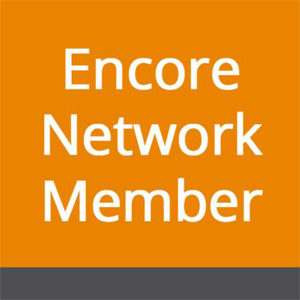Guest post by Lisa Levinson and Doris Reeves-Lipscomb, Women’s Learning Studio
 Our alliance with Encore Tampa Bay has made us aware that many baby boomers wish to keep working in a new style of retirement that includes earning income. But many might not have looked for a job in many years.
Our alliance with Encore Tampa Bay has made us aware that many baby boomers wish to keep working in a new style of retirement that includes earning income. But many might not have looked for a job in many years.
Finding a job used to be classified, as in classified newspaper advertisements. Help wanted ads also existed on job boards physically located in employment or Human Resources offices. Now job postings, job searches, and job applications are overwhelmingly done online. Because of these changes, Bevan asked us to offer perspective on the “new” job boards for boomers to assist their search for work as employees, freelancers, and flexible project specialists.
What are job boards?
 Job boards are websites that match employers’ vacant jobs with job seekers. Most job boards use traditional job descriptions to entice prospective workers into full time employment opportunities. But we found a few that specialize in “alternate” work arrangements that boomers favor such as part-time, flexible hours, and contract work. The Bankers Life Center for a Secure Retirement’s research in 2015 documented that many boomers want “more flexible work arrangements and scheduling, and many try new career paths in different industries.”
Job boards are websites that match employers’ vacant jobs with job seekers. Most job boards use traditional job descriptions to entice prospective workers into full time employment opportunities. But we found a few that specialize in “alternate” work arrangements that boomers favor such as part-time, flexible hours, and contract work. The Bankers Life Center for a Secure Retirement’s research in 2015 documented that many boomers want “more flexible work arrangements and scheduling, and many try new career paths in different industries.”
What are the types of job boards?
Online job boards are categorized into four types.
- Aggregators, also called job search engines, “scrape” the web for job listings. Indeed and SimplyHired are arguably the best known & most comprehensive with listings gathered from all other job boards and employers’ career pages. Indeed’s tag line is “One Search. all jobs.” SimplyHired also scours social media for job listings. LinkUp aggregates job listings from employers’ career pages only, which reportedly results in the most active, up-to-date listings with no duplicates.
- General job boards rely on employers to post jobs on their sites. Employers have a wide variety of job boards to choose from. Monster and CareerBuilder may be the biggest.
- Niche job boards may be industry or work preference specific. For instance, Dice serves employers and workers in the tech sector. FlexJob is for those who want flexible work hours while com offers seasonal and hourly work. Upwork and Freelancer cater to freelancers on a transactional project-by-project basis. TheLadders is for executives looking for new opportunities. Other specialized job boards that remind at least one of us(!) of staffing companies are in engineering (ThinkJobs.com) and legal work (Law Jobs). The nonprofit employment niche is covered by either national or localized job boards such as the Nonprofit Leadership Center of Tampa Bay.
- Business social networking- job board LinkedIn may be unique, or not. The JobBoard Doctor blog claims that more and more job boards are copying LinkedIn’s social networking features bringing together employers, recruiters, current and potential employees to accelerate connection building for faster recruiting and referrals.
What makes one job board better than another?
A site we studied, Reviews.com, has identified 36 attributes to recommend the 15 best job boards from 197 online job sites. While the ratings they made could be disputed (because they receive revenue from some of the products/services they evaluate), their measures made sense to us. Factors they identified included:
 How easy it is to browse for jobs on the site. Are the searches free, can the most recent jobs listed be the first ones to come up in a search? Is it possible to broaden the focus to national vs. international jobs? Is the site easy for job seekers to comprehend and use or cluttered and confusing with other revenue producing ads for the job board?
How easy it is to browse for jobs on the site. Are the searches free, can the most recent jobs listed be the first ones to come up in a search? Is it possible to broaden the focus to national vs. international jobs? Is the site easy for job seekers to comprehend and use or cluttered and confusing with other revenue producing ads for the job board?- How robust the search features are. Can one filter by city or zip code, experience, job title or job type, or other focusing criteria, and save searches to expedite future job scans?
- How job searchers benefit from establishing a job board account. Is there valuable content, does it distinguish between employers, and does it have features such as tailored job criteria, filters for focusing a job search, easy upload and storage for resumes, and email alerts to notify job seekers of new job postings?
- Career resources. These could include specialized forums, tools to improve resumes, interview preparation, discussion forums, and salary information. Some might be more important to some job seekers because of their career development phase.
- User friendly help and support. Does the job board provide a FAQ section or email support?
- Mobile capability of job boards. Are the same information and features available on mobile-optimized websites for tablet and smartphone users on-the-go?
Other factors depend on a job seeker’s needs. An aggregator such as Indeed or SimplyHired offers a big-picture of job availability within a geographic zone or industry. Personalized career tests offered by some job boards would help job seekers understand their interests and skills. This insight could be valuable to those re-entering the workforce after a long absence. Once work opportunities are identified, a job seeker might want a job board that could assist with specific information about potential employers as Glassdoor does with salary information and employee reviews. If a job seeker wishes to stay in a well-defined industry, a niche board specializing in that industry could be the fastest way to find work coupled with connection building on LinkedIn for employee referral assistance.
How effective are job boards?
Job boards are not a panacea. Lisa’s blog post in January notes that “The effectiveness of job boards for those seeking employment depends on whom you read, as statistics range from less than 10% of users getting jobs to 20% of all hires from Job Boards (for example, CMO.com from Adobe believes the stats are less than 10% while USGreenTechnology.com states 20% of all hires are from job boards).”
Also remember that job boards, and most mid-to-large sized employers, use Applicant Tracking Systems (ATS) to weed out resumes so job boards will not be effective for you unless you optimize your resume for these systems. See our blog on ATS to learn more.
 Another of our recent blog posts cites studies showing that employee referrals far outpace job boards in hiring decisions as 50% of job hires flow from referrals. In today’s world with social media and the internet, job seekers would be wise to use a number of tools in combination. These tools include job boards and employers’ career pages, employers’ pages on LinkedIn & Facebook, and Twitter streams to get as much information and as many human connections as possible to potential employers.
Another of our recent blog posts cites studies showing that employee referrals far outpace job boards in hiring decisions as 50% of job hires flow from referrals. In today’s world with social media and the internet, job seekers would be wise to use a number of tools in combination. These tools include job boards and employers’ career pages, employers’ pages on LinkedIn & Facebook, and Twitter streams to get as much information and as many human connections as possible to potential employers.
In closing
What has been your experience with job boards? Do you have a favorite? What job board assistance have you found to be most valuable?
All photos courtesy of the talented artists at Pixabay.com

